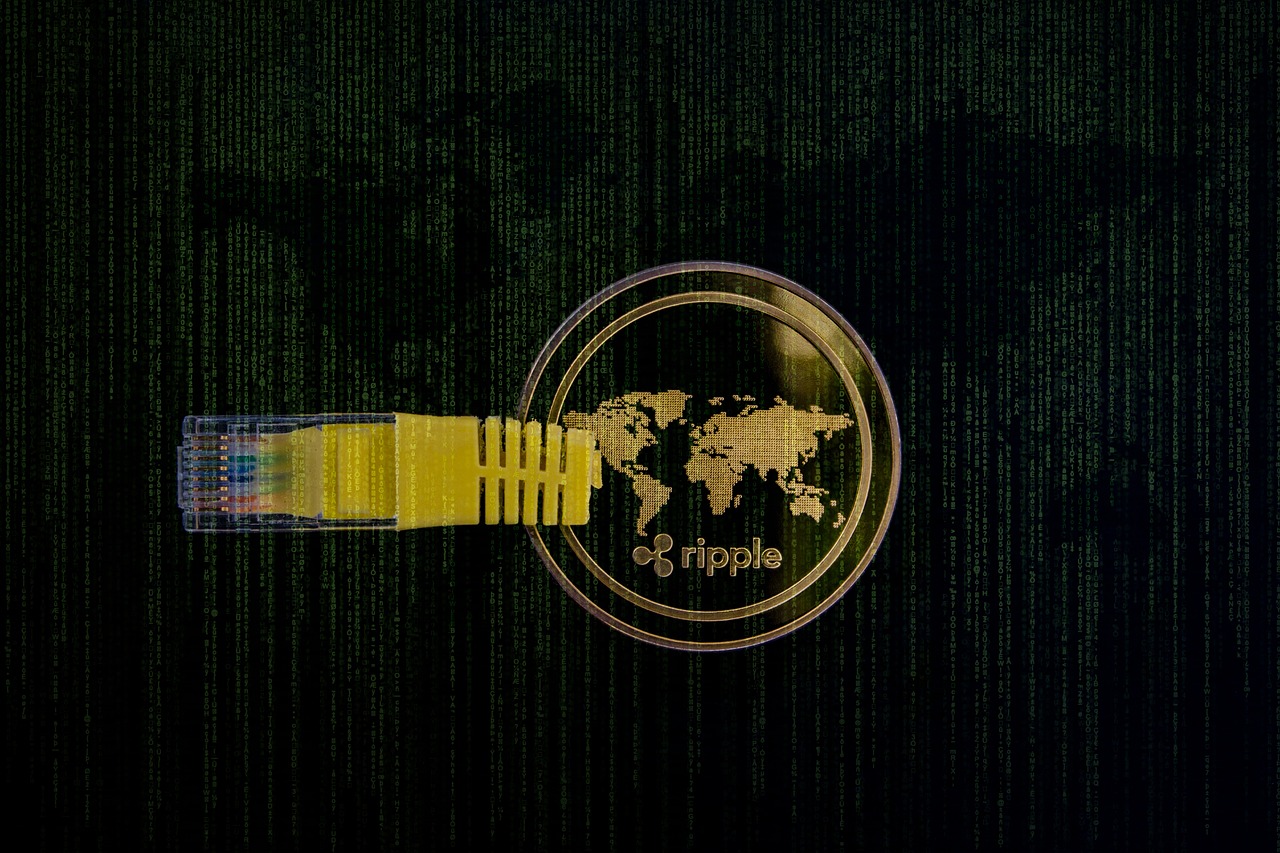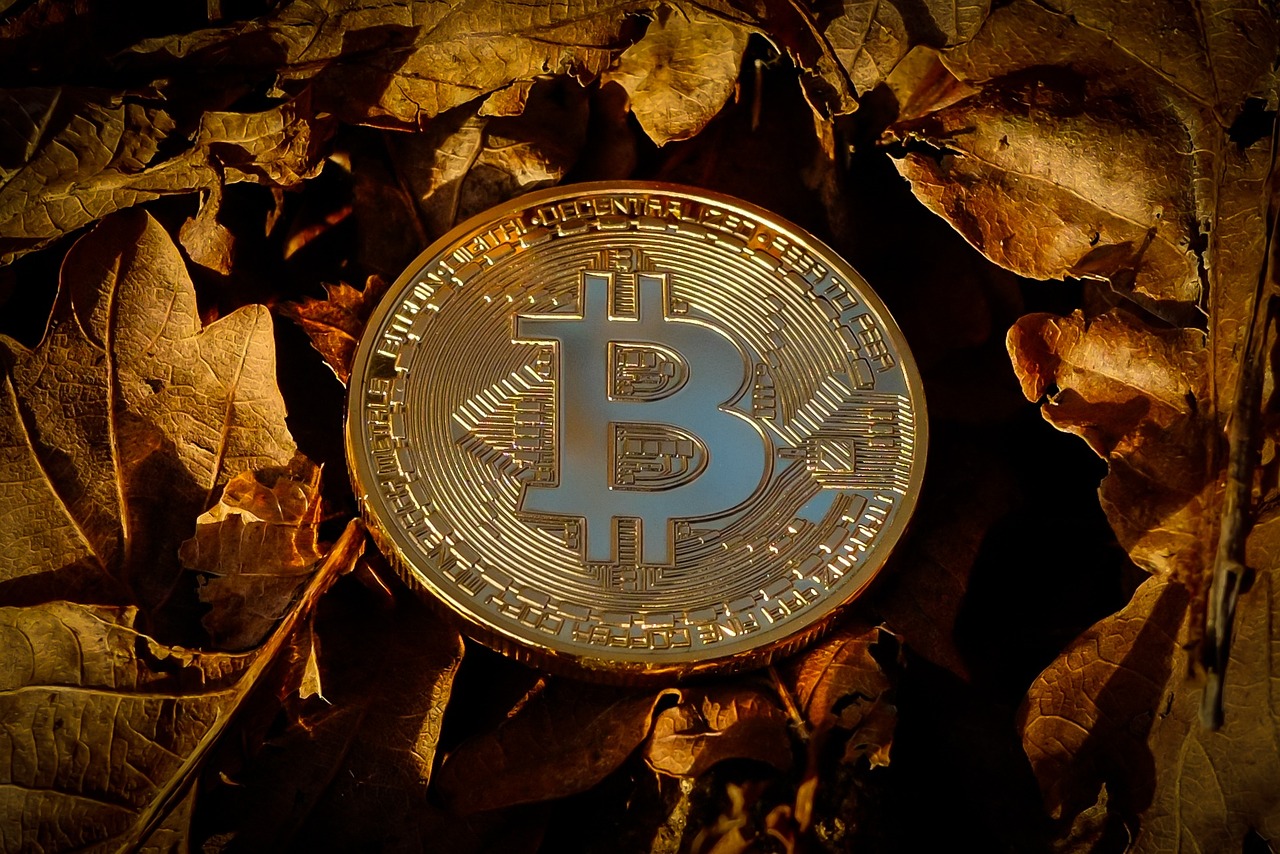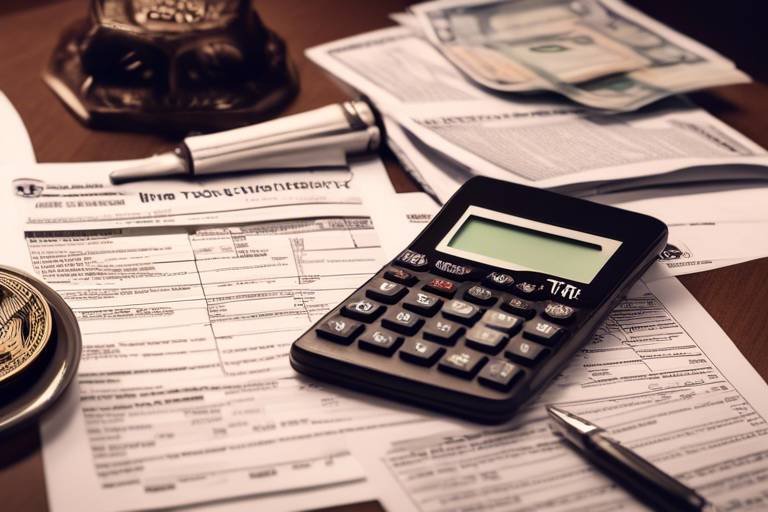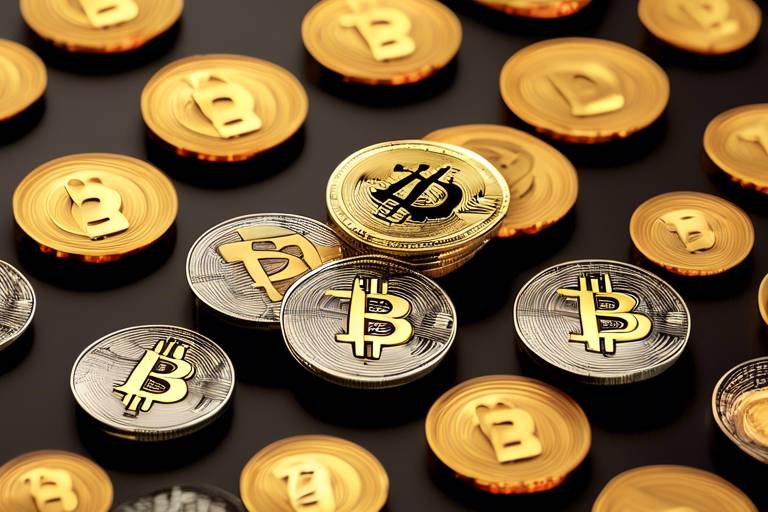Understanding the Legal Framework for Decentralized Exchanges
The world of cryptocurrency has taken the financial landscape by storm, and at the heart of this revolution are decentralized exchanges (DEXs). These platforms allow users to trade digital assets directly with one another, bypassing traditional intermediaries like banks or brokerage firms. However, as exciting as this technology is, it also brings with it a complex web of legal challenges that both users and developers must navigate. Understanding the legal framework surrounding DEXs is crucial for anyone looking to participate in this innovative space.
Decentralized exchanges operate in a unique environment where the principles of blockchain technology clash with existing regulatory frameworks. This creates a fascinating yet challenging scenario. On one hand, DEXs promote financial freedom and privacy, empowering users to trade without the oversight of centralized authorities. On the other hand, they are often scrutinized by regulators who are concerned about issues like fraud, money laundering, and consumer protection. As a result, the legal landscape for DEXs is continuously evolving, influenced by various jurisdictions around the globe.
In this article, we will explore the multifaceted legal environment that surrounds decentralized exchanges. We will delve into the regulatory landscape, compliance challenges that DEX operators face, the implications of securities laws, and what the future may hold for DEX regulation. By the end of this exploration, you will have a clearer understanding of the legal complexities that come with engaging in decentralized trading.
So, why should you care about the legal framework for DEXs? Well, for starters, ignorance of the law is not an excuse. Users and developers alike can face serious consequences if they inadvertently violate regulations. Additionally, as the market matures, the way DEXs are regulated will likely impact their usability and accessibility. It's essential to stay informed about these developments to make sound decisions in your trading endeavors.
Moreover, understanding the legal framework can also provide insights into how decentralized exchanges can operate more effectively within the confines of the law. This knowledge can lead to better compliance strategies, ultimately benefiting both operators and users. As we dive deeper into the article, you'll discover that while the challenges are significant, there are also innovative solutions on the horizon that could reshape the future of DEXs.
- What is a decentralized exchange (DEX)? A DEX is a platform that allows users to trade cryptocurrencies directly with each other without the need for a centralized authority.
- Why is regulation important for DEXs? Regulation helps protect users from fraud and ensures that exchanges operate within the law, which can enhance trust and security in the ecosystem.
- What are the main compliance challenges for DEX operators? DEX operators often face hurdles related to Know Your Customer (KYC) and Anti-Money Laundering (AML) regulations.
- How do securities laws affect DEXs? Securities laws can classify certain tokens traded on DEXs as securities, leading to additional regulatory requirements for operators.
- What does the future hold for DEX regulation? The future may see more harmonized global regulations and the potential influence of Decentralized Autonomous Organizations (DAOs) on compliance.

Regulatory Landscape of Decentralized Exchanges
The world of decentralized exchanges (DEXs) is as thrilling as it is complex. As the crypto landscape evolves, so does the regulatory environment surrounding these platforms. DEXs operate on a different paradigm compared to traditional exchanges, which raises unique challenges for regulators. The regulatory landscape is not uniform; it varies significantly across different jurisdictions, leading to a patchwork of rules that can be confusing for users and operators alike.
For instance, in the United States, the Securities and Exchange Commission (SEC) has taken a cautious approach, scrutinizing DEXs to ensure compliance with existing securities laws. In contrast, countries like Switzerland have embraced a more progressive stance, creating regulatory frameworks that encourage innovation while ensuring consumer protection. This divergence in regulatory approaches raises important questions: How can DEXs navigate these regulations effectively? What implications do these rules have for users who wish to trade on these platforms?
To give you a clearer picture, let's break down some of the key jurisdictions and their approaches to DEX regulations:
| Jurisdiction | Regulatory Body | Approach to DEXs |
|---|---|---|
| United States | SEC, CFTC | Strict scrutiny; potential classification of tokens as securities. |
| European Union | ESMA | Developing a comprehensive regulatory framework; focus on consumer protection. |
| Switzerland | FINMA | Progressive; encourages innovation with clear guidelines. |
| Singapore | MAS | Balanced approach; supports innovation while ensuring compliance. |
This table illustrates the varying degrees of regulatory oversight that DEXs face across the globe. As a DEX operator, understanding these differences is crucial for ensuring compliance and maintaining a good standing in the market. The challenge is not only to comply with local regulations but also to anticipate changes in the legal landscape that could impact operations.
Furthermore, the rise of decentralized finance (DeFi) has prompted regulators to rethink their strategies. With the rapid growth of DEXs, regulators are becoming more aware of the need for a cohesive approach that balances innovation with the need for consumer protection and market integrity. This ongoing evolution presents both challenges and opportunities for DEX operators and users alike.
In summary, the regulatory landscape for decentralized exchanges is a complex and ever-changing environment. As DEXs continue to gain popularity, staying informed about regulatory developments and understanding the implications of these regulations will be essential for anyone involved in the crypto space. Whether you're a user looking to trade or a developer creating the next big DEX, navigating this landscape requires a keen understanding of the rules that govern your activities.

Compliance Challenges for DEX Operators
Decentralized exchanges (DEXs) have revolutionized the way we trade cryptocurrencies, offering users a peer-to-peer platform that eliminates the need for intermediaries. However, with great innovation comes significant compliance challenges. As DEX operators navigate the murky waters of regulations, they face a myriad of hurdles that can hinder their operations and expose them to legal risks. One of the most pressing challenges is the implementation of Know Your Customer (KYC) and Anti-Money Laundering (AML) protocols.
KYC and AML regulations are designed to prevent fraud and illicit activities. While traditional exchanges have established systems to comply with these regulations, DEXs, by their very nature of decentralization, find it difficult to implement similar measures. This raises a critical question: How can DEX operators ensure compliance without sacrificing the very essence of decentralization that attracts users in the first place?
To understand the compliance landscape better, let's break down some of the key challenges:
- Decentralization vs. Regulation: DEXs operate on a decentralized model where control is distributed among users. This makes it challenging to enforce KYC/AML regulations since there is no central authority to oversee transactions.
- Anonymity of Users: Many users are drawn to DEXs because they offer a degree of anonymity. This poses a dilemma for operators who must balance user privacy with the need to verify identities.
- Varying Regulations Across Jurisdictions: Different countries have different regulations. A DEX operating globally must navigate this complex regulatory environment, which can lead to confusion and potential legal repercussions.
Moreover, the consequences of non-compliance can be severe. Regulatory bodies may impose hefty fines, and in extreme cases, operators could face criminal charges. This not only affects the operators but also the users who rely on these platforms for trading. Therefore, it’s crucial for DEX operators to stay informed about the evolving regulatory landscape and adapt their practices accordingly.
The significance of KYC and AML regulations cannot be overstated. They are essential in fostering trust within the crypto ecosystem. By implementing these measures, DEX operators can help mitigate risks associated with fraud and money laundering. Furthermore, compliance can enhance the legitimacy of DEXs in the eyes of regulators and consumers alike, paving the way for broader acceptance and usage.
As we explore the global landscape of KYC and AML regulations, it's evident that there are stark differences in how various countries approach compliance. For instance, while some jurisdictions have stringent requirements, others may be more lenient. This inconsistency can create significant hurdles for DEX operators, who must tailor their compliance strategies to align with the laws of each region they serve. Below is a table that highlights the regulatory approaches of several key jurisdictions:
| Jurisdiction | KYC Requirements | AML Regulations |
|---|---|---|
| United States | Strict KYC verification required | Comprehensive AML policies enforced |
| European Union | Varies by member state | EU-wide AML directives apply |
| Singapore | Moderate KYC requirements | Robust AML framework in place |
| Japan | Strict KYC regulations | Strong AML laws enforced |
As seen in the table, the regulatory landscape is not only complex but also constantly evolving. DEX operators must stay ahead of these changes to ensure compliance and avoid potential pitfalls.
Fortunately, advancements in technology offer promising solutions to help DEX operators meet compliance requirements. Innovative tools such as blockchain analytics, smart contracts, and decentralized identity solutions can aid in implementing KYC and AML processes without compromising decentralization. For example, blockchain analytics can track transactions and identify suspicious activities, while decentralized identity solutions can allow users to verify their identities without revealing sensitive personal information.
In conclusion, while compliance challenges for DEX operators are significant, they are not insurmountable. By embracing technology and staying informed about regulatory changes, DEX operators can navigate these hurdles effectively and create a safer trading environment for their users.
1. What are the main compliance challenges for DEX operators?
The main challenges include balancing decentralization with regulatory requirements, ensuring user anonymity while implementing KYC/AML measures, and navigating varying regulations across different jurisdictions.
2. Why are KYC and AML important for DEXs?
KYC and AML regulations help prevent fraud and illicit activities, fostering trust in the crypto ecosystem and enhancing the legitimacy of DEXs.
3. How can technology assist DEX operators in compliance?
Technological solutions such as blockchain analytics and decentralized identity systems can help operators implement KYC and AML processes effectively without compromising their decentralized nature.

Importance of KYC and AML in DEX
The significance of Know Your Customer (KYC) and Anti-Money Laundering (AML) regulations in the realm of decentralized exchanges (DEXs) cannot be overstated. As the crypto landscape evolves, DEXs have emerged as popular alternatives to traditional exchanges, allowing users to trade digital assets in a more peer-to-peer manner. However, with great freedom comes great responsibility, and this is where KYC and AML come into play. These regulations serve as crucial safeguards against illicit activities, ensuring that exchanges do not become havens for money laundering, fraud, or other illegal transactions.
Imagine a bustling marketplace where buyers and sellers interact freely, but without any oversight. It may sound liberating, but such an environment can quickly become a breeding ground for criminal activities. By implementing KYC and AML measures, DEX operators can create a more secure trading environment. These regulations require platforms to verify the identities of their users, which helps to build trust within the crypto community. In essence, KYC acts as the gatekeeper, ensuring that only legitimate participants can access the marketplace.
Moreover, the consequences of non-compliance with KYC and AML regulations can be severe, not just for the operators but also for the users. Regulatory bodies around the world are becoming increasingly vigilant about enforcing these laws, and failing to adhere to them can lead to hefty fines, legal action, or even the shutdown of the exchange. This reality highlights the importance of DEX operators prioritizing compliance as part of their business model.
To illustrate the impact of KYC and AML regulations, consider the following key points:
- Enhanced Security: By verifying user identities, DEXs can mitigate risks associated with fraud and hacking.
- Building Trust: Compliance fosters a sense of security among users, encouraging more people to participate in the DEX ecosystem.
- Legal Protection: Adhering to regulations protects operators from legal repercussions and enhances their reputation in the market.
In conclusion, the importance of KYC and AML regulations in decentralized exchanges cannot be ignored. They not only protect the integrity of the exchange but also contribute to the overall health of the cryptocurrency ecosystem. As the regulatory landscape continues to evolve, DEX operators must stay ahead of the curve, implementing robust compliance measures to ensure a safe and secure trading environment for all users.
Q: What is KYC and why is it important for DEXs?
A: KYC, or Know Your Customer, is a process that requires exchanges to verify the identities of their users. It is crucial for preventing fraud and ensuring that only legitimate participants engage in trading.
Q: How do AML regulations impact DEX operations?
A: Anti-Money Laundering (AML) regulations help prevent illicit activities such as money laundering and fraud. DEX operators must implement these regulations to avoid legal issues and maintain a secure trading environment.
Q: What are the consequences of non-compliance with KYC and AML?
A: Non-compliance can result in severe penalties, including fines, legal action, and the potential shutdown of the exchange. It is essential for DEX operators to prioritize compliance to protect their business and users.

Global Variations in KYC/AML Regulations
The world of decentralized exchanges (DEXs) is as diverse as the countries in which they operate, particularly when it comes to Know Your Customer (KYC) and Anti-Money Laundering (AML) regulations. Each jurisdiction has its own approach, which can create a complex web of compliance requirements for DEX operators. In some regions, regulations are stringent, demanding rigorous identity verification processes, while in others, the rules might be more relaxed, allowing for greater anonymity. This variation can significantly impact how DEXs function and how users engage with them.
For instance, in the United States, regulatory bodies such as the Financial Crimes Enforcement Network (FinCEN) and the Securities and Exchange Commission (SEC) impose strict KYC and AML guidelines. DEXs operating in the U.S. are often required to implement comprehensive verification processes to prevent illicit activities. On the other hand, jurisdictions like Malta and Switzerland have adopted more progressive stances, encouraging innovation while still ensuring a level of oversight that protects users and the financial system.
To better illustrate these differences, here’s a quick comparison of how various countries approach KYC/AML regulations for DEXs:
| Country | KYC Requirements | AML Regulations |
|---|---|---|
| United States | Strict; full verification required | Comprehensive; enforced by FinCEN |
| Malta | Moderate; flexible options available | Strong; but promotes innovation |
| Switzerland | Moderate; risk-based approach | Robust; focus on financial integrity |
| Singapore | Moderate; encourages responsible practices | Enforced; but supportive of crypto growth |
As we can see, the regulatory landscape varies widely from one country to another. In some regions, DEXs may operate with minimal oversight, which can attract users looking for privacy and freedom. However, this can also lead to risks, such as the potential for fraud or money laundering. Conversely, in countries with stringent regulations, while the compliance burden can be heavy, users may feel more secure knowing that there are checks in place to protect them.
Moreover, the global nature of cryptocurrency means that users often interact with DEXs across borders, complicating compliance further. A user in Europe might trade on a DEX based in Asia, raising questions about which jurisdiction's regulations apply. This scenario highlights the need for DEX operators to stay informed about the regulatory environments in various countries and to implement flexible compliance strategies that can adapt to changing laws.
In conclusion, understanding the global variations in KYC and AML regulations is crucial for anyone involved in decentralized exchanges. It informs not just the operational strategies of DEXs but also the choices users make when engaging with these platforms. As the crypto landscape continues to evolve, so too will the regulations, and staying ahead of these changes will be essential for success in this dynamic field.
- What are KYC and AML regulations? KYC (Know Your Customer) and AML (Anti-Money Laundering) regulations are measures designed to prevent financial crimes by verifying the identity of users and monitoring transactions.
- Why are KYC and AML important for DEXs? These regulations help reduce the risk of fraud, money laundering, and other illegal activities, thereby protecting both the platform and its users.
- How do global variations in regulations affect DEX users? Users may face different levels of security and compliance depending on the jurisdiction of the DEX, which can influence their trading experience and legal protections.
- What should DEX operators consider regarding compliance? Operators need to understand the regulations in the jurisdictions they serve, implement necessary compliance measures, and stay updated on any changes in the legal landscape.

Technological Solutions for Compliance
The world of decentralized exchanges (DEXs) is a thrilling frontier, but it also comes with its own set of compliance challenges. As operators strive to maintain the core principles of decentralization while adhering to regulatory requirements, innovative technological solutions are emerging to bridge this gap. One of the most exciting developments is the integration of smart contracts. These self-executing contracts with the terms of the agreement directly written into code can automate compliance processes, reducing the need for intermediaries and enhancing transparency. Imagine a world where transactions are not only secure but also inherently compliant with regulations—this is the promise of smart contracts.
Another noteworthy technology is the use of identity verification platforms. These platforms utilize advanced techniques such as biometrics and blockchain-based identity management systems to facilitate Know Your Customer (KYC) processes without compromising user privacy. For instance, users can verify their identity through a decentralized identity (DID) system, allowing them to control their personal data while satisfying regulatory requirements. This not only streamlines the onboarding process but also builds trust among users, as they know their information is secure and not stored on a central server.
Furthermore, data analytics tools play a crucial role in compliance by monitoring transactions in real-time. These tools can identify suspicious activities and flag them for further investigation, thereby assisting DEX operators in adhering to Anti-Money Laundering (AML) regulations. By employing machine learning algorithms, these analytics platforms can continuously improve their detection capabilities, adapting to new tactics employed by bad actors. This proactive approach is essential in a landscape where regulations are constantly evolving and the methods of illicit activity are becoming increasingly sophisticated.
Moreover, the rise of decentralized compliance solutions is noteworthy. These platforms allow DEX operators to collaborate and share compliance data in a secure manner, ensuring that they are all meeting regulatory standards without sacrificing their decentralized ethos. For example, a consortium of DEXs could create a shared compliance framework, utilizing blockchain technology to maintain a tamper-proof record of compliance activities. This collective approach not only enhances efficiency but also fosters a sense of community among operators.
In summary, the integration of these technological solutions offers a promising path forward for DEX operators grappling with compliance challenges. By leveraging smart contracts, identity verification platforms, data analytics tools, and decentralized compliance solutions, they can navigate the regulatory landscape more effectively. As the industry continues to evolve, these innovations will be pivotal in ensuring that DEXs can thrive in a compliant manner while staying true to their foundational principles.
- What are decentralized exchanges (DEXs)? DEXs are platforms that allow users to trade cryptocurrencies directly with one another without the need for a centralized authority.
- Why are compliance solutions important for DEXs? Compliance solutions help DEX operators meet regulatory requirements, ensuring the platform remains legal and trustworthy while protecting users from fraud.
- How do smart contracts enhance compliance? Smart contracts automate processes and ensure that transactions are executed according to predefined rules, which can help maintain compliance with regulations.
- What role does data analytics play in DEX compliance? Data analytics tools monitor transactions in real-time, identifying suspicious activities and helping DEX operators adhere to AML regulations.

Legal Risks for Users of DEX
Engaging with decentralized exchanges (DEXs) can feel like a thrilling rollercoaster ride through the world of cryptocurrency. However, just as with any adventure, there are potential bumps in the road that users must navigate. One of the most significant concerns for users is the legal risks associated with trading on these platforms. While DEXs offer a sense of freedom and anonymity, they also come with a unique set of challenges that can leave users exposed to various legal repercussions.
First and foremost, users should be aware of the user agreements that govern their interactions with DEXs. Unlike traditional exchanges, where terms and conditions are often clearly laid out, the decentralized nature of DEXs can lead to ambiguous agreements. This ambiguity can result in misunderstandings regarding the rights and responsibilities of users, potentially leading to disputes that may require legal intervention. For instance, if a user inadvertently violates a platform's terms, they may find themselves in a precarious position, facing penalties or even losing access to their funds.
Moreover, the lack of regulatory oversight in many jurisdictions means that users may not have the same protections they would expect from traditional financial institutions. This absence of regulation can expose users to fraudulent schemes or scams, where malicious actors could exploit the decentralized nature of these platforms. Without a central authority to turn to for recourse, users might find it challenging to recover lost assets or seek justice in the event of wrongdoing.
Another critical legal risk involves tax implications. In many countries, cryptocurrency transactions are subject to taxation, and users must be diligent in reporting their trades to avoid penalties. The decentralized nature of DEXs can complicate this process, as transactions may not always be easily traceable. Users should familiarize themselves with their local tax regulations to ensure they remain compliant and avoid any nasty surprises come tax season.
Furthermore, users must also consider the potential liability associated with the tokens they trade. In some jurisdictions, certain tokens may be classified as securities, which would subject them to stringent regulations. If users trade tokens that are deemed securities without proper knowledge or compliance, they could face legal action from regulatory bodies. This is particularly concerning as the classification of tokens can vary significantly between countries, adding another layer of complexity for users operating on a global scale.
In light of these risks, it is crucial for users to conduct thorough research and stay informed about the legal landscape surrounding DEXs. Being proactive can help mitigate potential issues and enhance their trading experience. Here’s a quick recap of the main legal risks users might encounter:
- Ambiguous user agreements: Unclear terms can lead to disputes.
- Lack of regulatory protection: Increased exposure to fraud and scams.
- Tax obligations: Potential legal issues due to unreported trades.
- Token classification: Trading unregistered securities can lead to legal action.
Ultimately, while the allure of decentralized exchanges is undeniable, users must tread carefully. Understanding the legal risks involved can empower them to make informed decisions and navigate the complex world of cryptocurrency with confidence.
Q: What are the main legal risks associated with using DEXs?
A: Users face risks such as ambiguous user agreements, lack of regulatory protections, tax obligations, and potential liability for trading unregistered securities.
Q: How can users protect themselves from legal issues when trading on DEXs?
A: Conduct thorough research, read user agreements carefully, stay informed about local regulations, and ensure compliance with tax obligations.
Q: Are DEXs regulated?
A: Many DEXs operate in a regulatory grey area, and regulations can vary significantly by jurisdiction.
Q: What should I do if I encounter a legal issue while using a DEX?
A: It's advisable to consult with a legal professional who specializes in cryptocurrency and blockchain law to understand your options.

Impact of Securities Laws on DEX
The world of decentralized exchanges (DEXs) operates on the cutting edge of technology and finance, but it's not without its challenges, particularly when it comes to securities laws. These laws, designed to protect investors and ensure fair trading practices, can have profound implications for how DEXs function. As these platforms allow users to trade cryptocurrencies and tokens without the need for a centralized authority, the question arises: are the tokens being traded considered securities? This determination can dictate the regulatory obligations and risks associated with operating a DEX.
In many jurisdictions, the classification of tokens as securities hinges on specific criteria. For example, the Howey Test, established by the U.S. Supreme Court, is often used to assess whether an investment qualifies as a security. According to this test, a transaction is considered a security if it involves an investment of money in a common enterprise with the expectation of profits derived from the efforts of others. This means that if a token is marketed as an investment opportunity, it could very well fall under the definition of a security.
To illustrate this point, let’s consider a few scenarios:
- If a DEX lists a token that promises returns or profits based on the platform's performance, regulatory bodies may classify it as a security.
- Conversely, if a token is purely a utility token, providing access to a service without an investment aspect, it may not be classified as a security.
This categorization is not just a theoretical concern; it has real-world implications. For instance, DEXs that inadvertently list securities without proper registration could face hefty fines and legal action from regulatory authorities. This creates a challenging environment for DEX operators who must navigate the murky waters of compliance while striving to maintain the core principles of decentralization.
Furthermore, the impact of securities laws extends beyond just the operators of DEXs. Users also need to consider the legal ramifications of trading tokens that may be classified as securities. Engaging in transactions involving unregistered securities can expose users to legal risks, including penalties and restrictions on future trading activities. This reality forces users to be more vigilant and informed about the tokens they trade, as ignorance of the law is not typically a valid defense.
In addition to the direct implications for DEX operations and users, there is a broader impact on the cryptocurrency ecosystem as a whole. The uncertainty surrounding securities classifications can stifle innovation and deter projects from launching on DEXs, as developers may fear regulatory repercussions. This could ultimately slow down the growth of decentralized finance (DeFi) and limit the options available to users.
As we look to the future, the interplay between DEXs and securities laws will likely evolve. Regulatory bodies are becoming increasingly aware of the unique challenges posed by decentralized platforms, and there may be a movement towards creating clearer guidelines. However, until such regulations are established, both operators and users must remain cautious and informed to navigate this complex legal landscape.
- What determines if a token is classified as a security?
The classification often depends on the Howey Test, which evaluates whether an investment involves an expectation of profits from the efforts of others. - What are the consequences of trading securities on a DEX?
Trading unregistered securities can lead to legal penalties for both operators and users, including fines and restrictions on trading activities. - How can DEX operators ensure compliance with securities laws?
Operators should conduct thorough legal assessments of the tokens they list and stay updated on regulatory changes in their jurisdictions.

Classification of Tokens as Securities
When it comes to the world of decentralized exchanges (DEXs), one of the most crucial aspects to grasp is how tokens are classified under various jurisdictions, particularly concerning securities laws. The can have profound implications for both the exchanges and their users. But what exactly does this mean? In simple terms, a token may be considered a security if it meets certain criteria that indicate it represents an investment in a common enterprise, with the expectation of profits derived from the efforts of others.
The legal framework surrounding token classification often relies on tests that assess the nature of the token and its intended use. In the United States, for example, the Howey Test is a key determinant. This test examines whether there is an investment of money in a common enterprise with a reasonable expectation of profits to be derived from the efforts of others. If a token passes this test, it is likely to be classified as a security, bringing it under the purview of the Securities and Exchange Commission (SEC) and its regulations.
Different jurisdictions may apply varying criteria, leading to a complex and often confusing landscape for developers and users alike. For instance, while the U.S. has a stringent approach, other regions, such as Switzerland or Malta, have developed more accommodating frameworks for token offerings. This disparity creates a patchwork of regulations that can complicate compliance for DEX operators.
To illustrate the differences, consider the following table that summarizes how select jurisdictions classify tokens:
| Jurisdiction | Classification Criteria | Regulatory Body |
|---|---|---|
| United States | Howey Test | SEC |
| Switzerland | Utility vs. Security Tokens | FINMA |
| Malta | Technology Neutral Approach | Malta Financial Services Authority |
In addition to the legal implications, the classification of tokens as securities affects the operational capabilities of DEXs. If a token is deemed a security, it may require the exchange to register as a securities exchange and adhere to stringent reporting and compliance obligations. This could fundamentally alter the decentralized nature of these platforms, as operators may be compelled to implement measures such as Know Your Customer (KYC) and Anti-Money Laundering (AML) protocols.
Moreover, the classification can impact user experience. For example, if a user trades a token classified as a security on a DEX, they may face restrictions on trading or even be subjected to legal penalties if unaware of the token's status. This highlights the necessity for users to conduct thorough due diligence before engaging with any token on a decentralized exchange.
As the regulatory landscape continues to evolve, it is essential for both developers and users to stay informed about the classification of tokens within their respective jurisdictions. The implications of these classifications can be vast, affecting everything from compliance obligations to the very nature of how DEXs operate.
- What is the Howey Test? The Howey Test is a legal standard used to determine whether a transaction qualifies as an investment contract, thus classifying it as a security.
- How do different countries classify tokens? Countries have varying criteria; for example, the U.S. uses the Howey Test, while Switzerland distinguishes between utility and security tokens.
- What are the implications of a token being classified as a security? If a token is classified as a security, it may require compliance with regulatory obligations, affecting how it can be traded on DEXs.

Case Studies of DEX and Securities Regulation
When it comes to the intersection of decentralized exchanges (DEXs) and securities regulation, real-world case studies provide invaluable insights. These instances not only highlight the complexities of regulatory compliance but also serve as cautionary tales for both operators and users. One notable case is that of Uniswap, a leading DEX that has faced scrutiny regarding its token listings. Given that Uniswap allows users to trade virtually any token, questions arose about whether some of these tokens could be classified as securities under U.S. law.
In 2021, the U.S. Securities and Exchange Commission (SEC) began investigating whether certain tokens traded on Uniswap were indeed securities. The crux of the matter lies in the Howey Test, a legal standard used to determine whether an asset qualifies as a security. This test assesses whether an investment of money in a common enterprise with the expectation of profits primarily from the efforts of others exists. If certain tokens were deemed securities, Uniswap could face significant regulatory hurdles, including the possibility of being required to register as a securities exchange.
Another compelling case is that of BitMEX, which, while primarily a centralized exchange, has implications for DEXs. In 2020, BitMEX was charged by the U.S. government for operating an unregistered trading platform and for failing to implement adequate KYC measures. This case serves as a stark reminder of the legal risks that DEX operators face, especially when it comes to compliance with securities laws. The fallout from this situation has led to increased scrutiny of DEXs, as regulators aim to ensure that these platforms do not facilitate the trading of unregistered securities.
Moreover, a significant development occurred in the European Union with the MiCA (Markets in Crypto-Assets) regulation. This proposed regulation aims to create a comprehensive framework for crypto assets, including those traded on DEXs. The MiCA regulation will require platforms to assess whether the tokens they list fall under the category of securities, thereby placing the onus of compliance on DEX operators. This regulatory approach could potentially harmonize rules across member states, but it also raises concerns about the impact on the decentralized nature of these exchanges.
As we analyze these case studies, it becomes clear that the legal landscape for DEXs is fraught with challenges. The implications of securities classification are profound, affecting not only the operational viability of DEXs but also the rights and responsibilities of users. For instance, if a token is classified as a security, it may be subject to stricter trading regulations, impacting liquidity and accessibility for users. Therefore, understanding these case studies is crucial for anyone involved in the DEX ecosystem.
In conclusion, the case studies of Uniswap, BitMEX, and the EU's MiCA regulation illustrate the intricate relationship between decentralized exchanges and securities laws. As the regulatory landscape continues to evolve, DEX operators must remain vigilant, adapting their practices to comply with existing and emerging regulations while striving to maintain the core principles of decentralization.
- What is a decentralized exchange (DEX)? A DEX is a platform that allows users to trade cryptocurrencies directly without the need for a central authority or intermediary.
- What are securities regulations? Securities regulations are laws that govern the issuance, trading, and sale of financial instruments like stocks and bonds, ensuring investor protection and market integrity.
- How can DEX operators comply with regulations? DEX operators can implement KYC and AML measures, utilize innovative technologies, and stay informed about regulatory changes in their jurisdictions.
- What are the risks of using a DEX? Users may face legal risks related to the classification of tokens, potential loss of funds, and lack of recourse in case of disputes.

Future Trends in DEX Regulation
The world of decentralized exchanges (DEXs) is evolving at a breakneck speed, and with it, the regulatory landscape is starting to take shape. As the popularity of DEXs continues to surge, regulators worldwide are grappling with how to appropriately oversee these platforms without stifling innovation. It's a delicate balance, much like walking a tightrope, and the future of DEX regulation is likely to reflect this complexity.
One of the most exciting prospects for the future of DEX regulation is the potential for harmonized global regulations. Imagine a world where a single set of rules governs DEXs across multiple jurisdictions! This would not only simplify compliance for operators but also enhance user confidence. Such an approach could facilitate international cooperation among regulators, making it easier for DEXs to operate across borders. However, achieving this level of harmony will require significant dialogue and collaboration among nations, which can be a daunting task.
Moreover, the rise of Decentralized Autonomous Organizations (DAOs) could play a pivotal role in shaping the regulatory future of DEXs. DAOs, which allow for community governance and decision-making, have the potential to enhance compliance by providing a transparent framework for operations. Imagine a DEX where every user has a say in the governance process! This could not only democratize the trading experience but also create a more accountable environment for regulatory compliance. Regulators might find it easier to engage with DAOs, as they represent a collective effort to adhere to legal standards.
In addition to these trends, we can expect to see the emergence of innovative technologies designed to streamline compliance without compromising the core principles of decentralization. For instance, advanced identity verification solutions could help DEX operators meet Know Your Customer (KYC) and Anti-Money Laundering (AML) requirements while preserving user privacy. These technological advancements could serve as a bridge between the ideals of decentralization and the practicalities of regulatory compliance.
However, the road ahead is not without challenges. The rapid pace of technological development often outstrips the ability of regulatory bodies to keep up. This could lead to a patchwork of regulations that vary significantly from one jurisdiction to another, creating confusion for users and operators alike. It’s essential for stakeholders in the DEX space to engage with regulators proactively, ensuring that they are part of the conversation as laws evolve.
As we look ahead, it’s clear that the future of DEX regulation will be characterized by a dynamic interplay between innovation and oversight. The ability of regulators to adapt to new technologies and business models will determine how effectively they can safeguard users while fostering a thriving DEX ecosystem. So, what does this mean for you, the user or developer? It means staying informed and engaged in the ongoing dialogue about regulation in the decentralized space is more important than ever.
- What are decentralized exchanges (DEXs)?
DEXs are trading platforms that allow users to trade cryptocurrencies directly with one another without the need for a centralized authority. - Why is regulation important for DEXs?
Regulation helps protect users from fraud, ensures compliance with financial laws, and fosters trust in the exchange ecosystem. - How can DEXs comply with KYC and AML regulations?
DEXs can implement advanced identity verification technologies and maintain transparent records of transactions to meet compliance requirements. - What role do DAOs play in DEX regulation?
DAOs can facilitate community governance, making it easier for DEXs to adhere to regulations through collective decision-making. - What are the future trends in DEX regulation?
We can expect harmonized global regulations, technological innovations for compliance, and increased involvement of DAOs in shaping the regulatory landscape.

Potential for Harmonized Global Regulations
As the world of decentralized exchanges (DEXs) continues to evolve, the conversation around harmonized global regulations is becoming increasingly vital. The rapid growth of the cryptocurrency market has led to a patchwork of regulations that vary significantly from one jurisdiction to another. This inconsistency not only creates confusion but also poses challenges for DEX operators and users alike. Imagine trying to navigate a maze where every turn leads to a different set of rules—frustrating, right? Well, that's the reality for many in the crypto space today.
One of the key benefits of establishing a unified regulatory framework is the potential for enhanced international compliance. By aligning regulations across borders, DEXs could operate with greater clarity and security, reducing the risk of legal repercussions. This would also foster a more stable environment for investors, encouraging them to participate without the fear of sudden regulatory changes. After all, who wouldn't want to invest in a market where the rules are clear and consistent?
Moreover, a harmonized approach could facilitate innovation in the DEX sector. With standardized regulations, developers would have a clearer understanding of what is permissible, allowing them to focus on creating cutting-edge solutions rather than navigating bureaucratic hurdles. For instance, if regulations around smart contracts were uniform globally, developers could confidently build and deploy new functionalities without the constant worry of legal ramifications.
However, achieving this level of regulatory harmony is no small feat. It requires collaboration among regulators, industry stakeholders, and the global crypto community. Countries must be willing to engage in dialogue and share best practices, which can be challenging given the diverse economic and political landscapes. But the potential rewards are immense. A cooperative framework could lead to increased investment, greater user adoption, and a more robust ecosystem overall.
To illustrate the current state of regulations and the potential for harmonization, consider the following table that highlights the varying approaches taken by different countries:
| Country | Current DEX Regulations | Potential for Harmonization |
|---|---|---|
| United States | Fragmented; state-specific regulations | High, with ongoing discussions |
| European Union | Proposed MiCA regulations | Moderate, but efforts are in place |
| Japan | Strict licensing requirements | Low, due to unique cultural factors |
| Singapore | Progressive and supportive framework | High, as a model for others |
As we look to the future, the role of Decentralized Autonomous Organizations (DAOs) could be pivotal in shaping these harmonized regulations. By providing a community-driven approach to governance, DAOs can advocate for transparency and fairness in the regulatory process. They can serve as a bridge between regulators and the crypto community, ensuring that the voices of users and developers are heard. This collaborative spirit is essential for building a regulatory framework that not only protects users but also promotes innovation.
In conclusion, while the path toward harmonized global regulations for DEXs may be fraught with challenges, the potential benefits are too significant to ignore. By working together, countries can create a more stable, innovative, and user-friendly environment for decentralized exchanges, paving the way for a brighter future in the world of cryptocurrency.
- What are decentralized exchanges (DEXs)? DEXs are platforms that allow users to trade cryptocurrencies directly with one another without the need for a centralized authority.
- Why is regulatory harmonization important for DEXs? It provides clarity and consistency in regulations, reducing confusion and legal risks for operators and users.
- How can DAOs influence DEX regulations? DAOs can advocate for user rights and transparency in regulatory processes, ensuring that the community's voice is considered.

Role of Decentralized Autonomous Organizations (DAOs)
Decentralized Autonomous Organizations, or DAOs, are revolutionizing how we think about governance and compliance in the world of decentralized exchanges (DEXs). Imagine a system where decisions are made not by a single entity but by a collective of stakeholders, all empowered through the use of blockchain technology. This concept is not just a futuristic ideal; it’s happening right now, and it has significant implications for how DEXs operate.
At their core, DAOs operate on smart contracts, which are self-executing contracts with the terms of the agreement directly written into code. This structure allows for a level of transparency and trust that traditional organizations struggle to achieve. In the context of DEXs, DAOs can facilitate governance mechanisms that enable users to vote on important issues, such as protocol upgrades, fee structures, or compliance measures. This participatory model fosters a sense of community among users, making them feel more invested in the platform's success.
Furthermore, DAOs can play a pivotal role in enhancing compliance with regulatory requirements. For instance, they can implement community-driven KYC (Know Your Customer) processes that allow users to verify their identities while maintaining a level of privacy that traditional systems often lack. This approach not only helps DEXs adhere to AML (Anti-Money Laundering) regulations but also empowers users by giving them control over their personal information.
However, the integration of DAOs into DEX operations is not without its challenges. The legal status of DAOs remains ambiguous in many jurisdictions, raising questions about liability and accountability. If a DAO makes a decision that leads to regulatory issues, who is responsible? Is it the developers, the users, or the DAO itself? These questions highlight the necessity for clear legal frameworks that can address the unique nature of DAOs.
As we look to the future, the potential for DAOs to influence the regulatory landscape of DEXs is immense. They could serve as a bridge between decentralized finance and regulatory compliance, creating a new paradigm where innovation and regulation coexist. The ability of DAOs to adapt and evolve in response to regulatory changes could make them invaluable allies for DEX operators. For instance, if a new regulation is introduced, a DAO could quickly convene to discuss and vote on necessary changes to the platform, ensuring swift compliance without sacrificing decentralization.
In summary, DAOs are not just a buzzword; they represent a fundamental shift in how governance and compliance can be approached in the decentralized exchange ecosystem. By leveraging the collective intelligence and resources of their communities, DAOs can help DEXs navigate the complex regulatory landscape while fostering a sense of ownership and engagement among users. As the crypto space continues to evolve, the role of DAOs will likely become even more critical, paving the way for a more compliant and user-centric future.
- What is a DAO? A DAO is a decentralized organization governed by smart contracts that allows stakeholders to make decisions collectively.
- How do DAOs enhance compliance? DAOs can implement community-driven KYC processes and adapt quickly to regulatory changes, promoting compliance while respecting user privacy.
- What are the legal implications of DAOs? The legal status of DAOs is still uncertain, raising questions about liability and accountability in decision-making.
- Can DAOs influence DEX governance? Yes, DAOs can facilitate user participation in governance, allowing for democratic decision-making on important issues.
Frequently Asked Questions
- What are decentralized exchanges (DEXs)?
Decentralized exchanges (DEXs) are trading platforms that operate without a central authority. They allow users to trade cryptocurrencies directly with one another, utilizing smart contracts to facilitate transactions. This model enhances privacy and security, as users retain control over their funds throughout the trading process.
- How do regulations affect DEXs?
Regulations can significantly impact how DEXs operate. Different jurisdictions have varying rules regarding compliance, KYC, and AML requirements. Some countries may impose strict regulations, while others may adopt a more lenient approach. This creates a complex legal landscape that DEX operators must navigate to avoid penalties and ensure user safety.
- What compliance challenges do DEX operators face?
DEX operators encounter numerous compliance challenges, particularly regarding KYC and AML regulations. These requirements demand that operators verify the identities of their users and monitor transactions for suspicious activity. Balancing these obligations with the decentralized nature of their platforms can be quite tricky.
- Why is KYC and AML important for DEXs?
KYC (Know Your Customer) and AML (Anti-Money Laundering) regulations are crucial for DEXs because they help prevent fraud, money laundering, and other illegal activities. Non-compliance can lead to severe penalties, including fines and shutdowns, which can jeopardize the entire platform and its users.
- How do different countries approach KYC/AML regulations?
Countries vary widely in their implementation of KYC and AML regulations. For instance, some nations require stringent identity verification, while others may have more relaxed rules. These differences can create challenges for DEX operators looking to serve a global audience, as they must adapt to multiple regulatory environments.
- What technological solutions exist for compliance?
Innovative technologies, such as blockchain analytics and automated identity verification tools, can assist DEX operators in meeting compliance requirements. These solutions help ensure that user data is handled securely while still enabling a decentralized trading experience.
- What legal risks do users face on DEXs?
Users of DEXs may encounter legal risks related to user agreements, privacy concerns, and potential regulatory scrutiny. Since DEXs operate in a gray area of the law, users should be aware of the implications of their trades and the legal landscape surrounding the platform.
- How do securities laws impact DEX operations?
Securities laws can significantly affect how DEXs function, particularly regarding the tokens traded on these platforms. If a token is classified as a security, it may be subject to additional regulations, which can complicate its trading and listing on DEXs.
- What criteria determine if a token is a security?
Various jurisdictions use different criteria to classify tokens as securities. Common factors include the expectation of profits from the efforts of others, the nature of the token's use, and how it is marketed. Understanding these criteria is essential for both DEX operators and users to avoid legal pitfalls.
- What are some notable cases of DEXs facing legal scrutiny?
There have been several instances where DEXs have come under legal scrutiny due to alleged violations of securities laws. These cases often highlight the complexities of operating in a regulatory gray area and serve as cautionary tales for other platforms in the space.
- What does the future hold for DEX regulation?
The future of DEX regulation is uncertain but could see the emergence of more harmonized global regulations. As the crypto market evolves, regulators may seek to create frameworks that facilitate compliance while preserving the decentralized nature of these exchanges.
- Can Decentralized Autonomous Organizations (DAOs) influence DEX regulations?
Yes, DAOs can play a significant role in shaping the regulatory landscape for DEXs. By promoting transparency, enhancing compliance mechanisms, and fostering community governance, DAOs can help demonstrate the viability of decentralized platforms, potentially easing regulatory concerns.



















